Le Visage de Karin est un film de genre Documentaire réalisé par Ingmar Bergman avec Ingmar Bergman
Le Visage de Karin (1986)
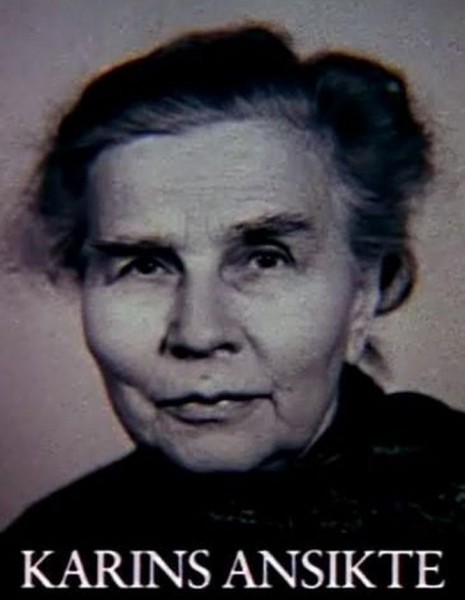
Si vous aimez ce film, faites-le savoir !
Karin's Face (Swedish title: Karins ansikte) is a 14-minute film directed by Ingmar Bergman focusing on Bergman's mother, Karin. The film consists of still photos of Bergman's mother and other family members shown over a simple piano score by Bergman's former wife, Käbi Laretei, with no narration. It was photographed by Bergman's longtime collaborator and neighbour, Arne Carlsson. It was completed in 1983 but first publicly shown at Swedish Television 29 September 1986.
Synopsis
Le Visage de Karin, du nom de la mère du cinéaste est un bout à bout de photographies de famille, sans commentaire, accompagné de la musique de Käbi Laretei - par ailleurs, ancienne épouse d'Ingmar Bergman.Acteurs
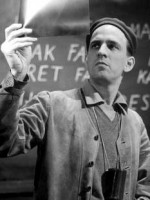
Ingmar Bergman
(Lui-même)
Commentaires
Postez un commentaire :
Suggestions de films similaires à Le Visage de Karin
Il y a 7 films ayant les mêmes acteurs, 55 films avec le même réalisateur, 8852 ayant les mêmes genres cinématographiques, 2422 films qui ont les mêmes thèmes, pour avoir au final 70 suggestions de films similaires.Si vous avez aimé Le Visage de Karin, vous aimerez sûrement les films similaires suivants :
 , 1h50
, 1h50Réalisé par Ingmar Bergman
Genres Documentaire
Thèmes Film traitant du cinéma, Documentaire sur le monde des affaires, Documentaire sur le cinéma, Documentaire sur les films
Acteurs Daniel Bergman, Ingmar Bergman, Gunnar Björnstrand, Allan Edwall, Ewa Fröling, Erland Josephson
Note75%






Most Valuable Players (2009)
, 1h35Origine Etats-Unis
Genres Documentaire
Thèmes Le thème de l'éducation, L'enfance, Documentaire sur une personnalité
Note76%






Anyone Can Play Guitar (2009)
Origine Royaume-uni
Genres Documentaire
Thèmes La musique, Documentaire sur la musique, Documentaire sur une personnalité, Musique
Note74%





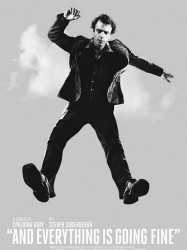
And Everything Is Going Fine (2010)
, 1h29Réalisé par Steven Soderbergh
Origine Etats-Unis
Genres Drame, Documentaire
Thèmes Film sur un écrivain, Documentaire sur une personnalité
Acteurs Spalding Gray
Note70%






Amazonia for Sale (2010)
, 35minutesGenres Documentaire
Thèmes Documentaire sur le droit, Documentaire sur une personnalité, Documentaire sur la politique, Politique
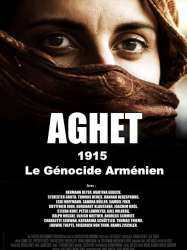 , 1h33
, 1h33Origine Allemagne
Genres Documentaire, Historique
Thèmes Le racisme, Documentaire sur la discrimination, Documentaire sur le droit, Documentaire sur la guerre, Documentaire historique, Documentaire sur une personnalité, Politique
Acteurs Martina Gedeck, Sylvester Groth, Joachim Król, Sandra Hüller, Hanns Zischler, Burghart Klaußner
Note68%





Aghet, se traduisant par « catastrophe » en arménien, est le mot utilisé pour désigner le massacre de plus d'un million d'Arméniens de l'Empire ottoman de 1915 à 1917. Le documentaire débute en évoquant le meurtre du journaliste Hrant Dink pour continuer sur le refus de la Turquie de reconnaître le génocide, les déclarations du premier ministre turc Recep Tayyip Erdogan ou encore le refus d'intervention du gouvernement impérial de l'Allemagne à l'époque, préfiguration d'un autre génocide, celui de la Shoah.

180° South (2010)
, 1h25Origine Etats-Unis
Genres Drame, Comédie, Documentaire
Thèmes L'environnement, Sport, Documentaire sur le sport, Documentaire sur l'environnement, Documentaire sur une personnalité
Acteurs Alicia Ika
Note74%





The film emulates the 1968 trip made by Yvon Chouinard and Doug Tompkins to Patagonia, but rather than by land, Jeff Johnson travels by sea from Mexico and south along the west coast of Chile. The film opens with original home movie footage as taken by Chouinard and Tompkins, and then continues with Johnson's own footage, in which he includes surfing, sailing and climbing as the film follows Johnson signing on with a small boat heading for Chile, his being delayed for several weeks on Easter Island, his meeting travel partner Makohe, and in his reaching Patagonia, Johnson meeting with Chouinard and Tompkins. The film concludes with his attempt to climb Cerro Corcovado (the Corcovado volcano), an attempt that was halted 200 feet from the summit out of concerns for safety.
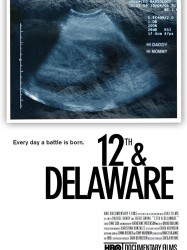
12th & Delaware (2010)
, 1h20Réalisé par Heidi Ewing, Rachel Grady
Origine Etats-Unis
Genres Documentaire
Thèmes La grossesse, Sexualité, Documentaire sur une personnalité, Documentaire sur la santé
Note72%





 , 1h
, 1hOrigine Etats-Unis
Genres Documentaire
Thèmes Danse, La musique, Documentaire sur la musique, Documentaire sur une personnalité, Musique
Acteurs William Shatner, Henry Rollins
Note75%





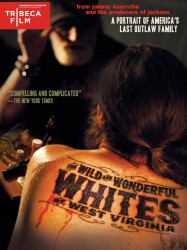 , 1h28
, 1h28Genres Documentaire
Thèmes La famille, Documentaire sur une personnalité
Note69%





The film follows the White family over the course of a year in their daily life through first-person interviews. The film mentions the details of the death of patriarch Donald Ray "D. Ray" White, as well as his rise to stardom as one of the most famous mountain dancers of his time. The illness of his widow, Bertie Mae White, is documented throughout the course of the film. Locals consider Bertie Mae "The Miracle Woman" because of her lifelong dedication to raising abandoned children. Throughout the film, Bertie is seen supporting her family despite her intolerance of their dangerous and reckless choices. The younger generations of Whites are followed to drug deals, criminal trials, hospital beds, and jail cells to recount the wild and outlandish events in their lives. A group of local professionals in Boone County act as a Greek chorus as they speak about the Whites, mostly criticizing their negative influence on the community.
 Connexion
Connexion